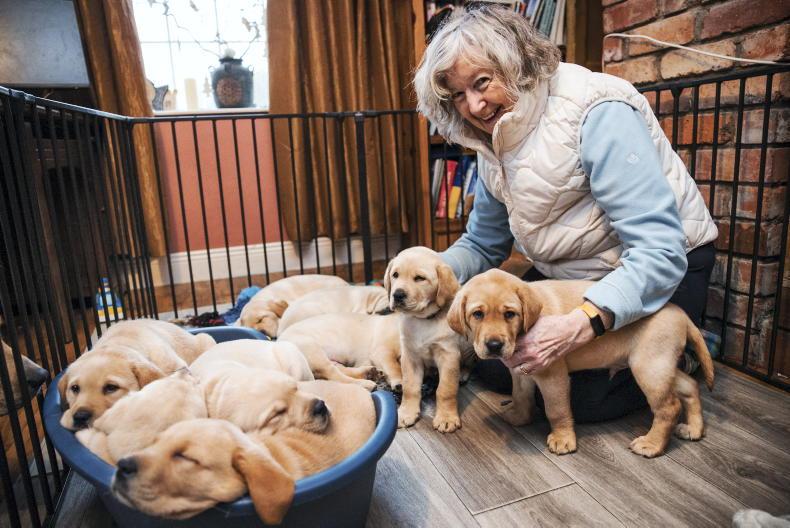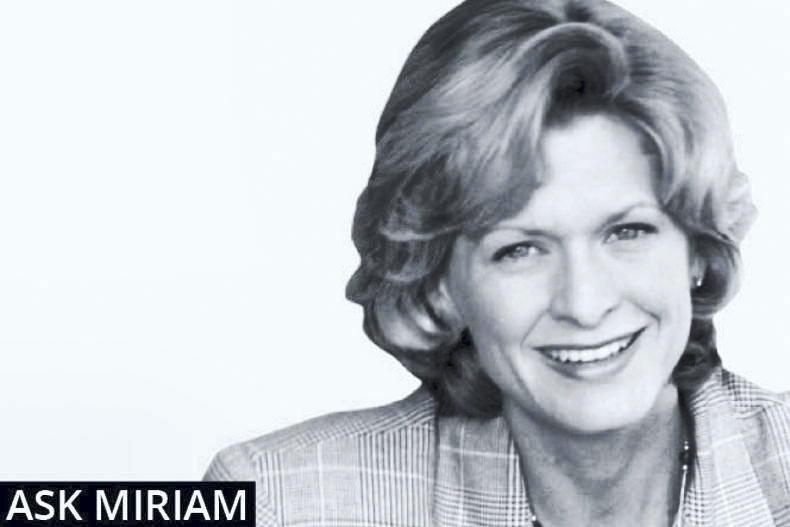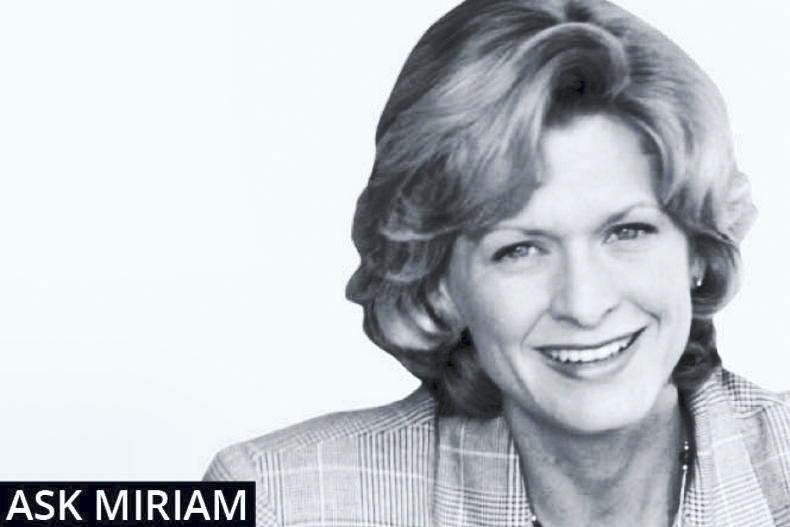When Sally came to see me for help with the difficulties she was having with her partner, she started, like most everyone else, by telling me all the bad things he was doing and constantly asking what she could do to change him in each particular defect.
Without realising it, Sally was making the same mistake that nearly all of us make in our relationships. She was looking for ways to change her partner, rather than trying to understand why she was accepting his behaviour by staying in this relationship.
Therefore Sally’s solution was to be found by identifying what she needed to change in herself in order to be able to change her response to him. Which meant changing her question to ‘What do I need to change in myself, rather than what she felt needed to be changed in him?’
Co-dependency is a term that many people know, but don’t understand. It’s normal to want to be close to our partner and to be affected by their actions. However, how can we know when our relationships are healthy or unhealthy?
Healthy relationships are characterised by a relative balance of power between two people. No one controls or seeks to control the other. Co-dependant relationships however are the exact opposite!
As Sally progressed through therapy, she realised how dependent she had become on her partner to make decisions for them both. Over time, she had learned to stop trusting her own emotions and start to rely on his.
By attending a 12 step self help group called Co-dependents Anonymous, Sally learned how to stand independently in her relationships. And it was this that set her free.
10 signs you may be in a co-dependent relationship
1. You always end up in relationships with needy people
Every time you go to the relationship shop, you keep shopping in the same aisle. You keep choosing the alcohol or drug addicts, domestic abusers, narcissists, controlling, immature or irresponsible people. Those people who are incapable of the emotional intimacy that is an integral part of a healthy relationship.
2. Needing to always be in a relationship
You feel lost, frantic, or empty when you’re alone. Your identity hinges on the experience of being with another person. Your get your sense of worth and purpose from being attached to another person. You need to be always rescuing them, or need them to rescue you.
3. Having difficulty making decisions in a relationship
You need the other person to make decisions for you. You constantly second-guess yourself. You’ve never learned to trust yourself and your instincts. You live in fear of saying, or doing the wrong thing.
4. Your feelings are entangled with your partner’s feelings
Every mood, outburst, or lack of emotion from your partner leaves you in a whirlwind that you can’t understand. You constantly deny your own feelings to keep the peace or have difficulty figuring out what they even are.
5. Communication is all
in one direction
You constantly feel misunderstood, your words are used against you. You’re often made to feel crazy; your opinion is criticised or discounted, you can never bring a complaint without ending up apologising for a counter-complaint. If you assert yourself and speak your mind, there’s an argument, silence or withdrawal of affection, or some other consequences… and yet, you continually tolerate it.
6. Depending on the other
person for approval
You take everything personally and any criticism knocks you. You easily become obsessed with figuring out what to do or say to restore the peace, which always involves you giving in.
7. Enabling bad behaviour
You enable the continuation of someone’s dysfunctional behaviour by protecting them from the natural consequences of that behaviour. You make excuses for them when they are drunk. You pay your adult son’s bills when he has gambled away his own money. You lie about the bruises on your arms because you don’t want your boyfriend to get in trouble.
8. You do all the giving
You bring everything you have to the table and make a lot of sacrifices for your family member, friend or partner to try to make them love you back and to ensure that the relationship continues, but it isn’t reciprocated.
9. Feeling like you cannot live without the other person
In a healthy relationship, both people are independent. They complement each other in many ways and bring out the best in each other. In co-dependent relationships, both of you feel inadequate and are obsessive, believing that you can’t function without the other.
10. Feeling unable to leave
You tolerate everything, whether it’s abuse or loneliness from the lack of warmth and genuine caring. You can see all the unhealthy behaviours in your partner but stay in the relationship anyway. You are willing to continually sacrifice your own needs, happiness, and growth to try and appease or make this other person happy, even when it obviously isn’t working.
Before you can ever learn how to have a relationship with someone else, you must first learn how to have a relationship with yourself.
Read all you can about co-dependency. Try to identify with what you can rather than compare yourself to what you can’t.
It takes time and a lot of soul searching to bring your own co-dependency into focus for yourself. Don’t fall into the trap of thinking you’re self-sufficient and should be able to manage alone. That’s a symptom of co-dependency too.
Go to a Twelve Step meeting for co-dependents, such as Co-dependents Anonymous, called CoDA, or Al-Anon for family members of alcoholics.
There are other Twelve Step groups for relatives of other addicts, such as for relatives of gamblers, narcotic addicts, and sex addicts. Find the one that fits your situation.
Practice living “one day at a time”. Meditation can help you calm your head when it’s fit to burst.
Get professional help from someone familiar with co-dependency who can help you navigate your way to independence. What are you trying to avoid looking at in yourself, that you are focusing on the other person? This is the real key in understanding co-dependency.
Confronting your own demons is the key to escape. Challenging your own addictions like food, alcohol/drugs and relationships starts the journey.
Listen to how you talk to yourself. That negative voice in your head is your own, not someone else’s. Learn to recognise and challenge your vague criticisms of yourself that you are useless and will never cope without the other person.
Practice living “one day at a time”. Meditation can help you calm your head when it’s fit to burst. Learn to accept that you don’t have to be perfect in order to be ok. Feelings are neither right nor wrong. They just are.
Start standing up for yourself when someone criticises or puts you down. Similarly, let go of trying to control and manage other people. Remember the saying, “live and let live.”
Over time, you can learn how to be comfortable in your own skin without needing to get this from someone else. That you are both capable of real love and loving. That you can learn to love others without losing yourself.
Read more
Agony Uncle: my son is a street angel, but a house devil
Mental Health: relieving stress – become willing to be willing
When Sally came to see me for help with the difficulties she was having with her partner, she started, like most everyone else, by telling me all the bad things he was doing and constantly asking what she could do to change him in each particular defect.
Without realising it, Sally was making the same mistake that nearly all of us make in our relationships. She was looking for ways to change her partner, rather than trying to understand why she was accepting his behaviour by staying in this relationship.
Therefore Sally’s solution was to be found by identifying what she needed to change in herself in order to be able to change her response to him. Which meant changing her question to ‘What do I need to change in myself, rather than what she felt needed to be changed in him?’
Co-dependency is a term that many people know, but don’t understand. It’s normal to want to be close to our partner and to be affected by their actions. However, how can we know when our relationships are healthy or unhealthy?
Healthy relationships are characterised by a relative balance of power between two people. No one controls or seeks to control the other. Co-dependant relationships however are the exact opposite!
As Sally progressed through therapy, she realised how dependent she had become on her partner to make decisions for them both. Over time, she had learned to stop trusting her own emotions and start to rely on his.
By attending a 12 step self help group called Co-dependents Anonymous, Sally learned how to stand independently in her relationships. And it was this that set her free.
10 signs you may be in a co-dependent relationship
1. You always end up in relationships with needy people
Every time you go to the relationship shop, you keep shopping in the same aisle. You keep choosing the alcohol or drug addicts, domestic abusers, narcissists, controlling, immature or irresponsible people. Those people who are incapable of the emotional intimacy that is an integral part of a healthy relationship.
2. Needing to always be in a relationship
You feel lost, frantic, or empty when you’re alone. Your identity hinges on the experience of being with another person. Your get your sense of worth and purpose from being attached to another person. You need to be always rescuing them, or need them to rescue you.
3. Having difficulty making decisions in a relationship
You need the other person to make decisions for you. You constantly second-guess yourself. You’ve never learned to trust yourself and your instincts. You live in fear of saying, or doing the wrong thing.
4. Your feelings are entangled with your partner’s feelings
Every mood, outburst, or lack of emotion from your partner leaves you in a whirlwind that you can’t understand. You constantly deny your own feelings to keep the peace or have difficulty figuring out what they even are.
5. Communication is all
in one direction
You constantly feel misunderstood, your words are used against you. You’re often made to feel crazy; your opinion is criticised or discounted, you can never bring a complaint without ending up apologising for a counter-complaint. If you assert yourself and speak your mind, there’s an argument, silence or withdrawal of affection, or some other consequences… and yet, you continually tolerate it.
6. Depending on the other
person for approval
You take everything personally and any criticism knocks you. You easily become obsessed with figuring out what to do or say to restore the peace, which always involves you giving in.
7. Enabling bad behaviour
You enable the continuation of someone’s dysfunctional behaviour by protecting them from the natural consequences of that behaviour. You make excuses for them when they are drunk. You pay your adult son’s bills when he has gambled away his own money. You lie about the bruises on your arms because you don’t want your boyfriend to get in trouble.
8. You do all the giving
You bring everything you have to the table and make a lot of sacrifices for your family member, friend or partner to try to make them love you back and to ensure that the relationship continues, but it isn’t reciprocated.
9. Feeling like you cannot live without the other person
In a healthy relationship, both people are independent. They complement each other in many ways and bring out the best in each other. In co-dependent relationships, both of you feel inadequate and are obsessive, believing that you can’t function without the other.
10. Feeling unable to leave
You tolerate everything, whether it’s abuse or loneliness from the lack of warmth and genuine caring. You can see all the unhealthy behaviours in your partner but stay in the relationship anyway. You are willing to continually sacrifice your own needs, happiness, and growth to try and appease or make this other person happy, even when it obviously isn’t working.
Before you can ever learn how to have a relationship with someone else, you must first learn how to have a relationship with yourself.
Read all you can about co-dependency. Try to identify with what you can rather than compare yourself to what you can’t.
It takes time and a lot of soul searching to bring your own co-dependency into focus for yourself. Don’t fall into the trap of thinking you’re self-sufficient and should be able to manage alone. That’s a symptom of co-dependency too.
Go to a Twelve Step meeting for co-dependents, such as Co-dependents Anonymous, called CoDA, or Al-Anon for family members of alcoholics.
There are other Twelve Step groups for relatives of other addicts, such as for relatives of gamblers, narcotic addicts, and sex addicts. Find the one that fits your situation.
Practice living “one day at a time”. Meditation can help you calm your head when it’s fit to burst.
Get professional help from someone familiar with co-dependency who can help you navigate your way to independence. What are you trying to avoid looking at in yourself, that you are focusing on the other person? This is the real key in understanding co-dependency.
Confronting your own demons is the key to escape. Challenging your own addictions like food, alcohol/drugs and relationships starts the journey.
Listen to how you talk to yourself. That negative voice in your head is your own, not someone else’s. Learn to recognise and challenge your vague criticisms of yourself that you are useless and will never cope without the other person.
Practice living “one day at a time”. Meditation can help you calm your head when it’s fit to burst. Learn to accept that you don’t have to be perfect in order to be ok. Feelings are neither right nor wrong. They just are.
Start standing up for yourself when someone criticises or puts you down. Similarly, let go of trying to control and manage other people. Remember the saying, “live and let live.”
Over time, you can learn how to be comfortable in your own skin without needing to get this from someone else. That you are both capable of real love and loving. That you can learn to love others without losing yourself.
Read more
Agony Uncle: my son is a street angel, but a house devil
Mental Health: relieving stress – become willing to be willing








SHARING OPTIONS